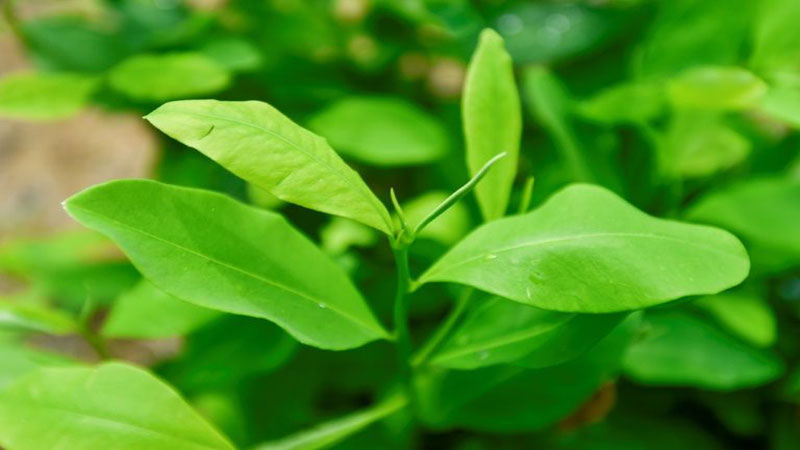Colombia’s coca growers facing stark choices over crops


Their spread has left former coca growers like Alex Molina embittered, having convinced others to rip up their illicit crops — seduced, he says, by promises the state has failed to keep.
For community leader Molina and others, choosing to forsake coca for traditional crops has been a costly choice and one they warn they may be forced to reverse.
“The substitution program has ruined me and left me in total insecurity.”
His situation is emblematic of a debate sweeping rural coca growing communities, at odds over the implementation of Colombia’s 2016 peace agreement with FARC guerrillas.
Under the agreement, coca growers, or “cocaleros” in former FARC-controlled areas would voluntarily replace their plantations with other cash crops like bananas, coffee or cocoa — in exchange for cash incentives.
It’s a vital component of Colombia’s US-backed war on drugs, both countries having a shared stake in the drive. Colombia remains the world’s largest producer of cocaine, the US the largest consumer.
But more than two years later, many cocaleros here are furious over repeated failures to implement the program, under which each household was to receive aid equivalent to $10,330 in cash and equipment over two years.
Payments have been intermittent or non-existent and the anger is palpable in the hamlet of Puerto Las Palmas, in the middle of the coca-growing region on the Venezuelan border.
“There are hungry children, and families that are desperate because they have no income,” Molina told AFP.
Meanwhile, neighbors who rejected the state’s offer continue to cultivate coca, making hay while the sun shines — knowing the time will come when the army will rip up their crop.
Regrets
The result is that Molina — who harvested his first coca leaves as a 12-year old — has gone from an enthusiastic supporter of substituting coca to defending its cultivation if there are no alternatives.
Only 34, he’s determined to lead his community away from coca cultivation if he can, but he says he can well understand those who have opted to stay on the dark side of the law.
If it came to it, he said: “I would protect the coca plants with my body, with the people around me, because it is the only option.”
The peasants of Puerto Las Palmas are hoping the government will unblock funds before they are forced to replant, according to Molina, aware that a return to coca could lead to prison.
Luis Portilla, 63, faces the same choice. He destroyed his coca crop, weary from the anxiety that a seek-and-destroy army raid would leave him with nothing.
He says the difficulties he had in obtaining the first tranche of aid — worth $3,800 — makes him doubt that other payments will ever arrive.
“Those who did not want to sign will soon have to feed us, if the state does not comply,” said Portilla.
One cocalero, who spoke on condition of anonymity for security reasons, said he had continued to grow coca after authorities rejected his request that the aid be paid in one instalment.
“We are given credit, the plantations allow us to eat, while those who have torn everything away find themselves without money, without food,” he said.
Forty of the 65 families in Puerto Las Palmas agreed in November 2017 to destroy their coca plantations, in exchange for staggered aid that would help them to subsist legally.
But no traditional crop has proved profitable. Unlike Coca, which is processed near where it is grown, other crops must be marketed outside the area and Catatumbo’s terrible roads make freight costs prohibitive.
In all, one-third of the families producing coca leaves, about 130,000 families, agreed to give up the illicit crop.
Recent Posts
- Pakistan
Punjab eyes digital future with global tech collaboration
Punjab Chief Minister Maryam Nawaz said the province is moving fast in digital technology and…
- Pakistan
Violent protest erupts in Karachi over Canal project
A protest against the canal project turned violent on Karachi’s National Highway as angry protesters…
- Pakistan
Naqvi blames foreign hands for terror plot, seeks probe into Pahalgam incident
Interior Minister Mohsin Naqvi said on Sunday that foreign-backed terrorists tried to destabilize Pakistan. He…
- Pakistan
PM Shehbaz updates Nawaz on Pahalgam situation, vows strong response
PM Shehbaz said Pakistan will respond with full force if India shows any aggression. He…
- Pakistan
Punjab plans central DNA database to boost crime solving
Punjab's Home Department has decided to create a central DNA database to improve crime detection…
- Business
SBP highlights Pakistan’s economic recovery at IMF meetings
Governor of the State Bank of Pakistan (SBP), Jameel Ahmad, showcased Pakistan’s improving economic outlook…
Leave a Comment